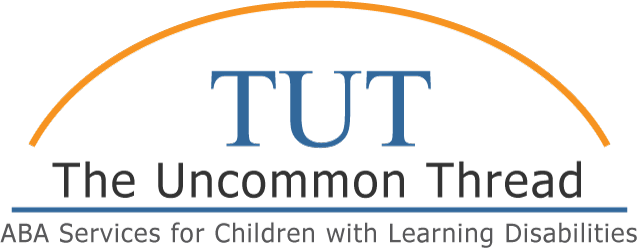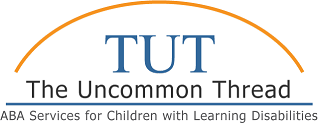Sibling relationships are one of the most important (and most often times) the longest relationships we will have in our lives. This special relationship brings with it a built in playmate, a friend, and sometimes a temporary foe. Siblings have a deep understanding of each other through their common background and upbringing and can be a great form of support through tough times. When it comes to siblings of children with autism, the joys as well as the challenges can be many.

Communication and understanding from parents and others is key to softening those challenges. Siblings of children diagnosed with autism are particularly sensitive. Studies have shown that these siblings usually mature quickly, exhibit independence, and are more responsive to the needs of others, especially when it comes to the needs of their sibling.
These children also often carry a wide range of emotions and have more ups and downs than a child without a sibling with a disability. These emotions can include anxiety, frustration and sometimes embarrassment due to their sibling’s behavior. They may also feel jealously or sadness if they perceive their sibling with autism is getting the lion’s share of attention from their parents.
If you have both a child (or children) diagnosed with autism and typically developing children, there is much you can do in terms of support and the cultivation of the sibling relationships.
10 Things You Can Do to Support Siblings Of Children With Autism
1. Set aside regular alone time for your typically developing children each day – even if it’s just 10 minutes at bedtime. It’s easy for a child to get lost in the shuffle when competing with their siblings’ varying needs.
2. Express their special gifts that they contribute to the family and reassure them that they are loved.
3. Continually talk to your child about autism in language they will understand. Stress that autism is not anyone’s fault, and that it doesn’t mean the end of the world for their sibling who is diagnosed with it.
4. Reassure your child that all of their emotions (positive and negative) toward their sibling are completely normal. Validate their feelings and try not to judge them for feeling the way they do. This difficult diagnosis affects the entire family.
5. Ask your child questions about things that interest them and pursue those things with him/her whenever possible.
Support Continued
6. Set family rules and responsibilities that are consistent and age/skill appropriate for all children including the child diagnosed with autism. It’s important that all children contribute to family life and feel they are all being treated fairly.
7. Refuse to accept hurtful or aggressive behavior from your child with autism. Explain that the behavior is a part of the disorder, but at the same time do not defend it. Always protect your other children as best you can from hurtful behavior so they don’t develop feelings of helplessness or resentment.
8. Cultivate friendships outside of the family to help your children feel more like his/her typical peers and not just the sibling of a child diagnosed with autism. Playdates and outings can be a welcomed escape from a noisy or chaotic household.
9. Try role playing to help your child explain to others their sibling’s diagnosis of autism and the varying behaviors that may accompany it.
10. Provide children with age-appropriate resources to learn more about autism. Autism speaks has a wonderful “siblings guide to autism” that you can share with your child.
Benefits of the Sibling Relationship
The benefits of a positive sibling relationship is plentiful and impactful. It is the same for a sibling relationship between a typical developing child and a child diagnosed with autism. We also can’t forget the relationship between multiple siblings with autism, which is just as important. Research shows that positive sibling relationships can increase sympathy, which promotes other prosocial behaviors like helping, sharing and general acts of kindness. When parents cultivate the sibling relationship, they teach young children to show compassion and empathy for others.
A sibling of a child with autism may feel saddened or discouraged to find their sibling may not want to play or engage with them. They may feel resentful that their sibling with autism gets more attention from parents and/or more leniency. This is normal, but there are many ways you can help cultivate and improve the sibling relationship that will benefit all your children and family as a whole.
5 Ways to Cultivate Positive Sibling Relationships
1. Find shared activities or games both or all siblings enjoy and carve out time for those activities as a family. Engaging in a common activity or working towards a common goal (team type games, sports etc.) builds strong bonds between all family members.
2. It’s important to help your children see your child with autism’s strengths, positive traits, and uniqueness. Stress that a diagnosis of autism does not negate those things.
3. Find moments to praise your child on their care or interaction with their sibling. Reward them for showing patience, engagement, and inclusion in play, or perhaps simply for sharing their toys.
4. Make sure your children have the space they need when they feel frustrated or are experiencing negative behaviors from their sibling with autism.
5. Spending adequate alone time with each child will help ease frustrations and ward off potential negative feelings of animosity and resentment.
Here at the Uncommon Thread we are committed to advancing the lives of children in New Jersey impacted by autism. We do this through ABA therapy and services which is the only proven treatment for autism. The Uncommon Thread is not a destination but rather a pathway to a more independent life. Visit us at the Uncommon Thread to learn more about ABA therapy and services.
Contact Us to Find Out More
Phone: 908-604-4500
Email: info@theuncommonthread.org Sign up for our newsletter below so that you never miss a post!
The Uncommon Thread is a nonprofit organization committed to advancing the lives of New Jersey children diagnosed with ASD. We have been providing ABA therapy and services in our centers, in the home and in school districts since 2007. Our mission is to help children reach their greatest potential and create a pathway to a more independent life.
More Helpful Articles:
Supporting Siblings of Children with Autism Spectrum Disorder



